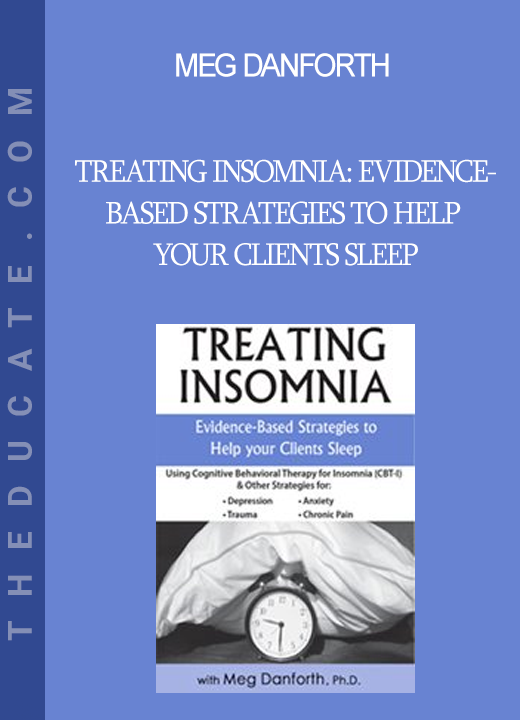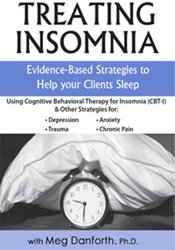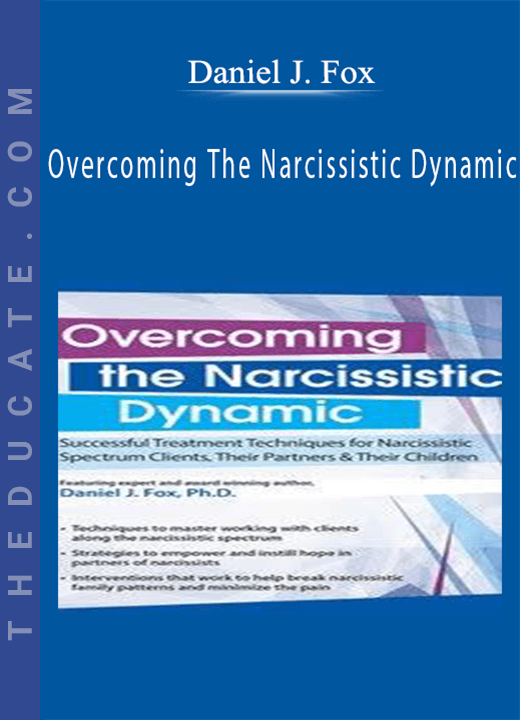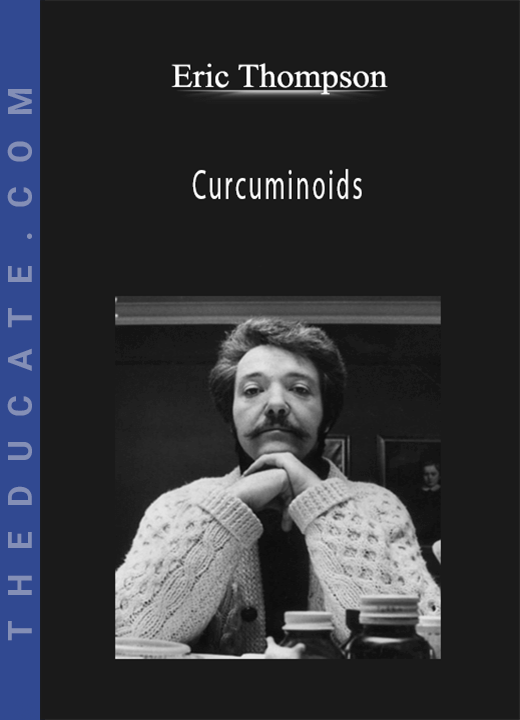Description
Meg Danforth – Treating Insomnia: Evidence-Based Strategies to Help Your Clients Sleep
- Faculty:
- Meg Danforth
- Duration:
- 6 Hours 18 Minutes
- Format:
- Audio and Video
- Copyright:
- Mar 21, 2017
Description
One of the biggest mistakes you as a clinician can make is NOT asking about the client’s sleeping habits. We all know the necessity of sleep – especially for those who are depressed, anxious, obsessively worried, or in chronic pain – yet often we overlook this. And worse, we think there’s nothing we can do to help them.
Join me, Meg Danforth, and I’ll show you successful, proven techniques I’ve developed over the last decade on how to optimize your clients sleep – without medication!
Discover evidence-based strategies to help your clients increase energy during the day, sleep more deeply, and re-initiate sleep after hot flashes, panic attacks or nightmares. The strategies I will show you can be easily integrated into existing treatment for depression, chronic pain, trauma and anxiety.
Take the next step and join me today, I will help you learn new assessment tools, step-by-step CBT, and counter-arousal strategies that your client can immediately use. My engaging workshop will include discussion of case vignettes, experiential exercises, examples of sleep logs and other tools to use in your clinical practice.
Handouts
| Manual (4.56 MB) | 52 Pages | Available after Purchase |
| Additional Forms & Handouts (1.46 MB) | 21 Pages | Available after Purchase |
Outline
Sleep Regulation
- Sleep homeostasis
- Behaviors that interfere with the build-up of sleep-drive
- The circadian system
- Behaviors that interfere with optimal timing of sleep
- Arousal system: behaviors that cause conditioned arousal and cognitive emotional hyperarousal
Assessment
- How to get useful information from sleep diaries
- The difference between sleepiness and fatigue
- When to make a referral to a sleep clinic
- Other assessment issues
Sleep Medications
- Why some medications do not work
- CBT-I as the most effective and longer lasting treatment
Cognitive Behavior Therapy for Insomnia (CBT-I)
- Sleep Restriction Therapy (SRT): Restore the Sleep Drive
- Calculate optimal time-in-bed prescription
- Collaborate on the best “sleep window”
- Special cases: when to use sleep compression instead
- Stimulus Control (SC): Addressing Conditioned Arousal
- Select an optimal standard rise time
- Fatigue management strategies to eliminate napping
- Special cases: when to use counter control instead
- Combining SC and SRT in one-session CBT-I
Counter-Arousal Strategies
- Identify and change negative thoughts that keep people awake
- Behavioral experiments
- Thought records
- The buffer zone
- Socratic questioning
- Structured, scheduled problem-solving
- Mindfulness
- Troubleshooting difficulties with adherence
- High sleep anxiety vs. high arousal
- Awakenings from pain, hot flashes, panic or nightmares
- Using light and activation in those with depression
Modifications to CBT for Insomnia in Complex Cases & Comorbidity
- Major Depressive Disorder
- Chronic pain
- Anxiety disorders
- Post-Traumatic Stress Disorder
Implementation Issues
- Relapse prevention
- Delivery issues
Faculty
Meg Danforth, Ph.D., CBSM Related seminars and products: 3
Meg Danforth, Ph.D., CBSM, is a licensed psychologist and certified behavioral sleep medicine specialist who provides advanced clinical care to patients with sleep disorders and comorbid medical and mental health issues. She is a clinician and educator at Duke University Medical Center in Durham, NC. As the Director of the Duke Behavioral Sleep Medicine Clinic, she has been helping people sleep better without medication for the past 15 years. She also provides clinical training and supervision to psychology graduate students, interns, and fellows. Dr. Danforth is committed to teaching clinicians from a variety of backgrounds to deliver CBT-I in the settings in which they practice. Her work has been featured in the Associated Press and CBS News.
Speaker Disclosures:
Financial: Margaret Marion Danforth is a clinical associate at Duke University Medical Center. She receives a speaking honorarium from PESI, Inc.
Non-financial: Margaret Marion Danforth is a member of the Association for Behavioral and Cognitive Therapies.







Reviews
There are no reviews yet.